
Henry Louis Reginald De Koven was an American music critic and prolific composer, particularly of comic operas.

Broadway theatre, or Broadway, are the theatrical performances presented in the 41 professional theatres, each with 500 or more seats, located in the Theater District and the Lincoln Center along Broadway, in Midtown Manhattan, New York City. Broadway and London's West End together represent the highest commercial level of live theater in the English-speaking world.
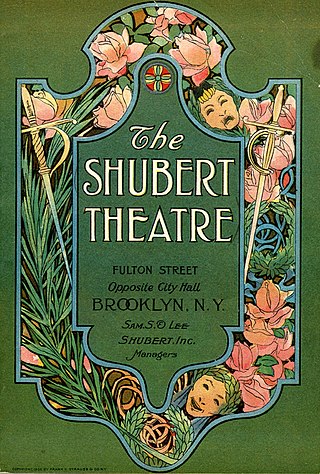
The Shubert Organization is a theatrical producing organization and a major owner of theatres based in Manhattan, New York City. It was founded by the three Shubert brothers in the late 19th century. They steadily expanded, owning many theaters in New York and across the United States. Since then it has gone through changes of ownership, but it is still a major theater chain.

Elizabeth Crocker Bowers was an American stage actress and theatrical manager. She was also known professionally as Mrs. D. P. Bowers.

John Conklin is an international theater designer, dramaturg and teaches in the Department of Design for Stage and Film at New York University's Tisch School of the Arts.
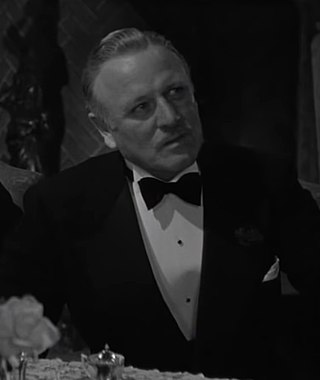
Pierre Frank Watkin was an American character actor best known for playing distinguished authority figures throughout the Golden Age of Hollywood. He is best remembered for his roles of Mr. Skinner the bank president in The Bank Dick (1940); Lou Gehrig's father-in-law Mr. Twitchell in Pride of the Yankees (1942); and the first actor to portray Perry White in the Superman serials Superman (1948) and Atom Man vs. Superman (1950).
Henry Martyn Blossom, Jr. was an American writer, playwright, novelist, opera librettist, and lyricist. He first gained wide attention for his second novel, Checkers: A Hard Luck Story (1896), which was successfully adapted by Blossom into a 1903 Broadway play, Checkers. It was Blossom's first stage work and his first critical success in the theatre. The play in turn was adapted by others creatives into two silent films, one in 1913 and the other in 1919, and the play was the basis for the 1920 Broadway musical Honey Girl. Checkers was soon followed by Blossom's first critical success as a lyricist, the comic opera The Yankee Consul (1903), on which he collaborated with fellow Saint Louis resident and composer Alfred G. Robyn. This work was also adapted into a silent film in 1921. He later collaborated with Robyn again; writing the book and lyrics for their 1912 musical All for the Ladies.
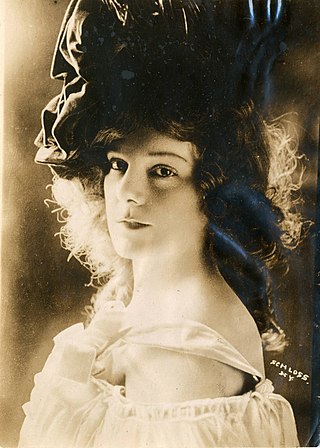
Virginia Earle was an American stage actress remembered for her work in light operas, Edwardian musical comedies and vaudeville over the decades surrounding the turn of the 20th century.
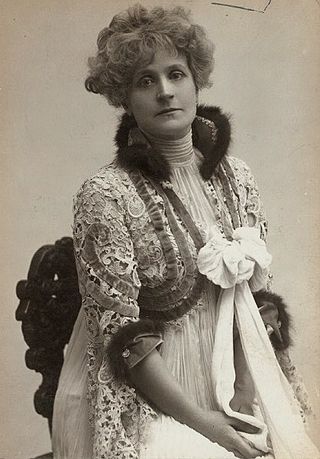
Henrietta Foster Crosman was an American stage and film actress.
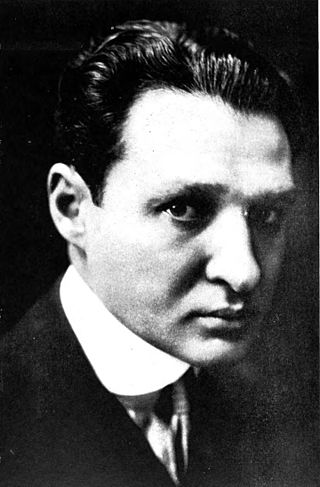
Joseph Kaufman was an American silent film actor and director prominent during the World War I years. He was born in Washington, D.C., and died in New York City.
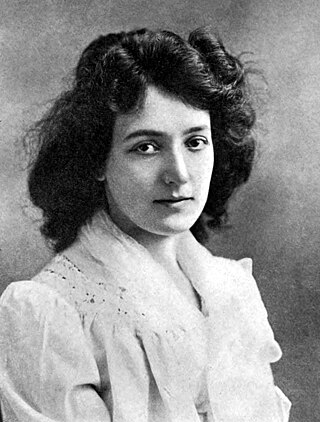
Clara Lipman was an American musical comedy actress and playwright whose career began in 1885 and continued on until her retirement in 1927. She was the wife of comedian Louis Mann and the sister of popular Lieder singer, Mattie Lipman Marum.

Alberta Gallatin was an American stage and film actress active in the late 19th and early 20th centuries. During her near forty-year career she acted in support of the likes of Elizabeth Crocker Bowers, James O’Neil, Edwin Booth, Joseph Jefferson, Thomas W. Keene, Richard Mansfield, Sir Johnston Forbes-Robertson, Minnie Maddern Fiske, Otis Skinner, Maurice Barrymore, Joseph Adler, E. H. Sothern and James K. Hackett. Gallatin was perhaps best remembered by theatergoers for her varied classical roles, as Mrs. Alving in Henrik Ibsen's domestic tragedy Ghosts and the central character in the Franz Grillparzer tragedy Sappho. Counted among her few film roles was the part of Mrs. MacCrea in the 1914 silent film The Christian, an early 8-reel production based on the novel by Hall Caine.
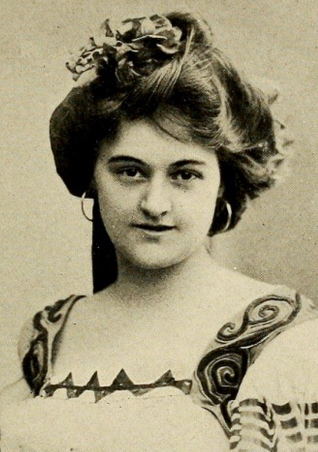
Helen Bertram was an American actress and singer in comic opera and musical theatre. She was also known for her tumultuous private life.

Marie Booth Russell was an English actress.

Frank J. Wilstach was an American newspaper editor, talent agent for actors and theater and motion picture organizations, an author and a lexicographer. He was best known for compiling the Dictionary of Similes, published in 1916, which was followed by a new edition in 1924 and an annual list of the best similes of the year.

Theresa Vaughn (1867-1903) was a popular American singer and comedian in the 1890s.

Louis Harrison was an actor, playwright, comedian, lyricist, librettist, and theatre director. As both a performer and playwright, he was mainly active within the genres of musical theatre and light opera.
The Billionaire is a musical in three acts with music by Gustave Kerker, and both book and lyrics by Harry B. Smith. The show was written with the backing of producers Klaw and Erlanger and was made specifically for the talents of Jerome Sykes who portrayed "The Billionaire", John Doe. The action of the musical begins in Nice, France during Carnival where the billionaire Sykes meets a young American girl, Pansy Good, studying to be an actress. Impressed with her talents, he buys her Doe's Theatre in New York City and establishes her as a star. Later, Doe attempts to ride a horse in a race at the Longchamp Racecourse in Paris, but is too fat to succeed. Pansy rides the horse instead and wins the race.



















